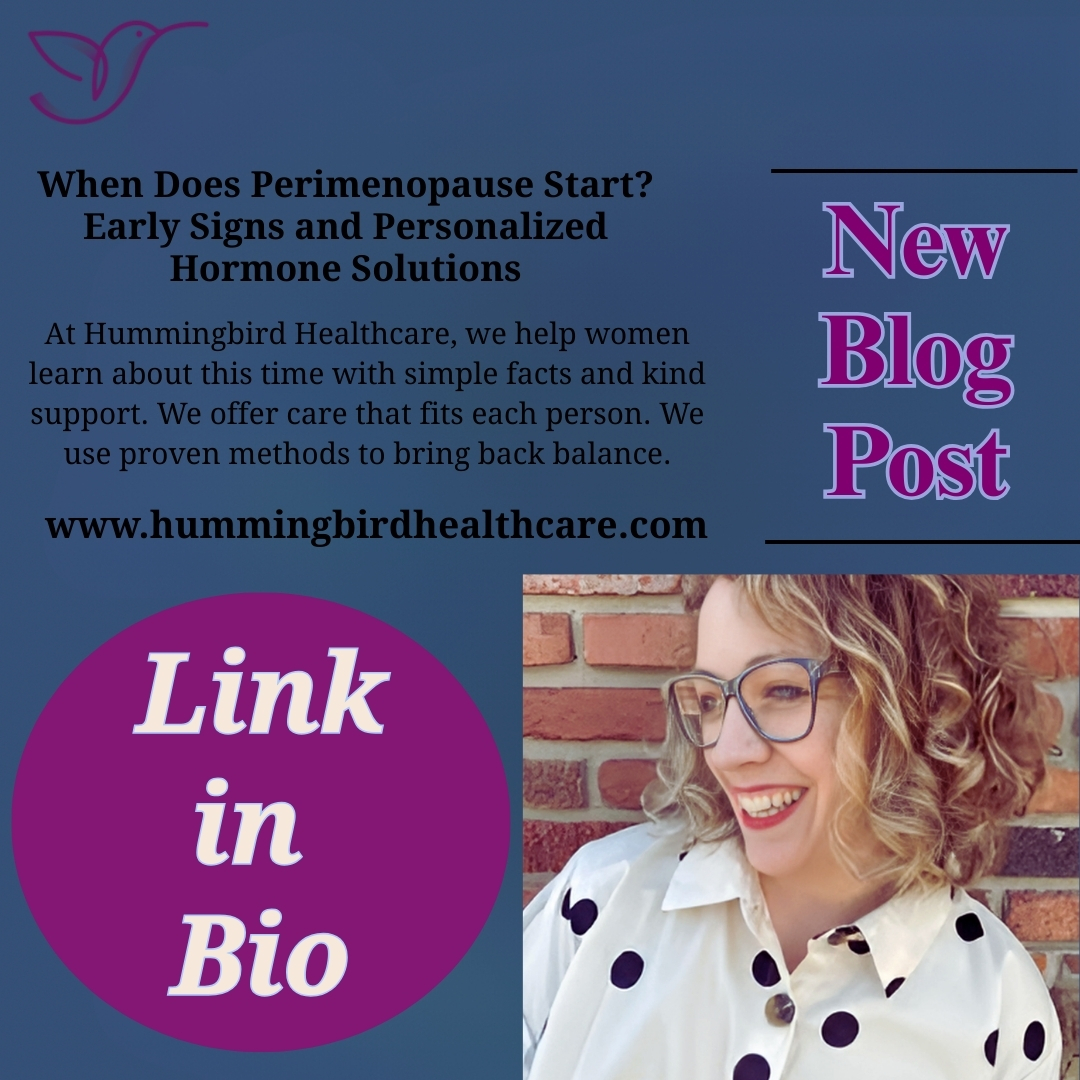Although we can't predict which symptoms you’ll have, we do know how to treat them.
Most women know that hot flashes are a common menopause symptom. But there’s so much more to it than that. From emotional shifts to physical changes, menopause symptoms can show up in ways that are easy to miss or easy to dismiss.
The good news? You’re not alone, and you don’t have to suffer through it. Once you learn what’s really happening in your body, you can take the steps to feel better, with support from the right menopause hormone treatment and lifestyle changes.
Menopause Symptoms: It’s More Than Just Hot Flashes
Yes, hot flashes are a well-known sign. But they’re just one piece of the puzzle. If you're over 40 and experiencing any of the following, you might be in perimenopause, the transition leading up to menopause:
- Irregular periods
- Changes in bleeding (heavier, lighter, longer, or shorter)
- Night sweats
- Palpitations
- Anxiety
- Depression
- Vaginal dryness
- Painful intercourse
- Trouble sleeping
You can learn menopause symptoms by paying attention to how your body is changing. This is especially important if your cycle starts behaving in unpredictable ways. More than one period a month? Or maybe no period for months at a time? Expect the unexpected.
Some women feel like completely different people during this time—emotional, uncomfortable, and exhausted. Others barely notice any changes at all. Every experience is valid.
What’s Really Going On: Hormonal Imbalance
Most symptoms of menopause stem from fluctuating hormone levels, especially estrogen and progesterone. This imbalance can feel intense. You may have heard of “estrogen dominance,” and while the term is common, it can be a bit misleading. A woman can have low or even normal estrogen levels and still experience symptoms like:
- Heavy, painful periods
- Anxiety and mood swings
- Decreased sex drive
- Weight gain
It’s not just about how much estrogen is present, but how it relates to progesterone. When the ratio is off, the symptoms show up.
For women in perimenopause, progesterone supplementation is often helpful and can significantly reduce symptoms. For post-menopausal women, a combination of estrogen and progesterone may be recommended to restore balance.
Hormone Therapy for Menopause: Finding Relief
The idea of hormone therapy for menopause can sound intimidating, but it doesn’t have to be. With the right care and supervision, it can be a safe and effective way to feel like yourself again. Menopause hormone treatment isn’t a one-size-fits-all solution—it’s tailored to your individual hormone levels, symptoms, and health goals.
The goal is simple: bring your body back into balance so you can sleep better, feel more emotionally stable, have more energy, and enjoy a better quality of life.
Let’s Talk About What You’re Feeling
There’s no need to guess or struggle alone. If you're noticing changes and wondering if hormones are the cause, it’s time to get some answers. Don’t wait for symptoms to get worse. If you're over 40 and checking any of the boxes listed above, it’s a good time to consider what’s really going on inside your body.
Start Feeling Better—Today
You deserve to feel good in your body. If hormonal imbalance is getting in the way of that, there are real solutions. Schedule an initial consultation with our expert at Hummingbird Healthcare. Let’s figure out what’s going on—together. There’s no need to wait and wonder. You can feel better, sleep better, and enjoy your life again—with the right support.





